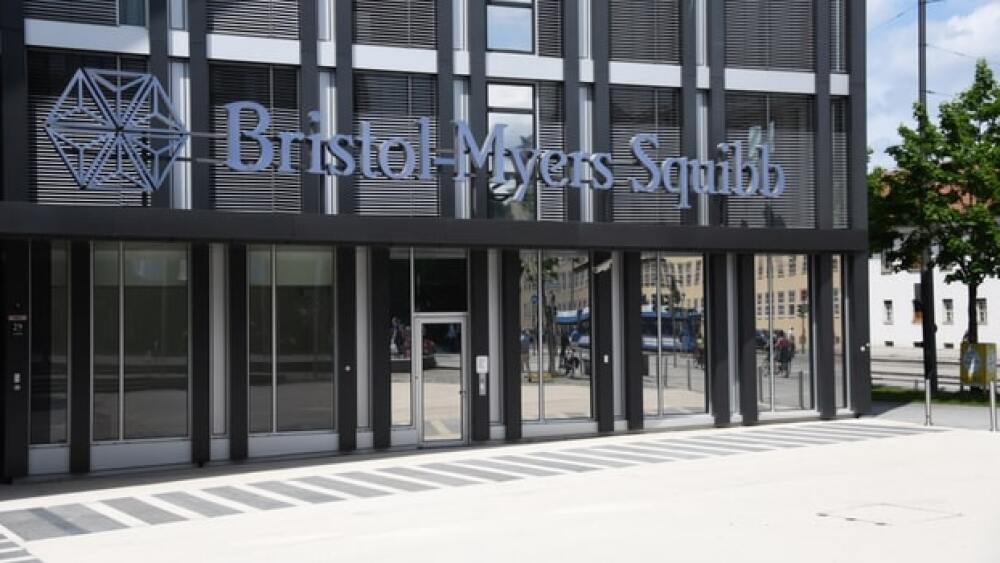Bristol Myers Squibb announced today that its Phase III CheckMate -816 trial met its primary endpoint of pathologic complete response (pCR) in patients with resectable non-small cell lung cancer.
nitpicker/Shutterstock
Bristol Myers Squibb announced today that its Phase III CheckMate -816 trial met its primary endpoint of pathologic complete response (pCR) in patients with resectable non-small cell lung cancer. The subjects who received Opdivo (nivolumab) along with chemotherapy before surgery showed no evidence of cancer cells in their resected tissue. This was compared to individuals who received chemotherapy alone.
“Up to half of patients who undergo surgery for non-metastatic lung cancer will experience disease recurrence,” said Mark Awad, M.D., Ph.D., clinical director, Lowe Center for Thoracic Oncology, Dana-Farber Cancer Institute. “Nivolumab has shown benefit as an adjuvant, or post-surgical, treatment option in other cancer types, and the positive results from CheckMate -816 speak to its potential in the neoadjuvant setting of resectable non-small cell lung cancer. We look forward to following patients in this trial of nivolumab plus chemotherapy as a new way of treating resectable non-small cell lung cancer, with the potential that an improvement in pathologic complete response will lead to extended event-free survival and, ultimately, overall survival.”
CheckMate -816 is a randomized, open label, multi-center trial that is evaluating Opdivo plus chemotherapy as a potential treatment option. For the initial analysis, a total of 358 patients were randomized to receive either 360mg of Opdivo plus histology-based platinum doublet chemotherapy every three weeks for up to three doses, or the chemotherapy treatment alone. The primary endpoint was pCR and event-free survival, while the secondary endpoints include overall survival (OS), major pathologic response (MPR) and time to death or distant metastases.
“The CheckMate -816 results build on Bristol Myers Squibb’s heritage in the treatment of thoracic cancers, where Opdivo-based regimens have demonstrated superior overall survival in patients with metastatic non-small cell lung cancer and unresectable malignant pleural mesothelioma,” said Abderrahim Oukessou, M.D., vice president, thoracic cancers development lead, Bristol Myers Squibb. “In addition, these data add to our growing scientific understanding of the potential of immunotherapy approaches to transform outcomes in earlier stages of different cancer types, when the immune system may be more responsive. We’re grateful to the patients and investigators who participated in the CheckMate -816 trial.”
This is not the first time that Opdivo has shown benefits when combined with chemotherapy as a form of treatment. Bristol Myers Squibb released results back in September from its CheckMate -649 Phase III trial, suggesting that Opdivo plus chemotherapy could potentially improve overall survival and progression-free survival in patients with unresectable advanced or metastatic gastric cancer, gastroesophageal junction (GEJ) cancer or esophageal adenocarcinoma.
“CheckMate -649 recently became the first global study in over a decade to demonstrate a significant overall survival benefit over chemotherapy in the first-line setting of non-HER2 positive gastric cancer, gastroesophageal junction cancer or esophageal adenocarcinoma, highlighting the potential of Opdivo plus chemotherapy to become a new standard of care for these patients, regardless of their tumor location,” said Ian M. Waxman, M.D., development lead, Gastrointestinal Cancers, Bristol Myers Squibb.
Opdivo is a programmed death-1 (PD-1) immune checkpoint inhibitor that uses the body’s immune system to restore anti-tumor immune response. As of September, Opdivo’s clinical development program has treated approximately 35,000 patients. In July 2014, it became the first PD-1 immune checkpoint inhibitor to receive regulatory approval in the world. Today, it is now approved in more than 65 countries, including the U.S., European Union, Japan and China.





